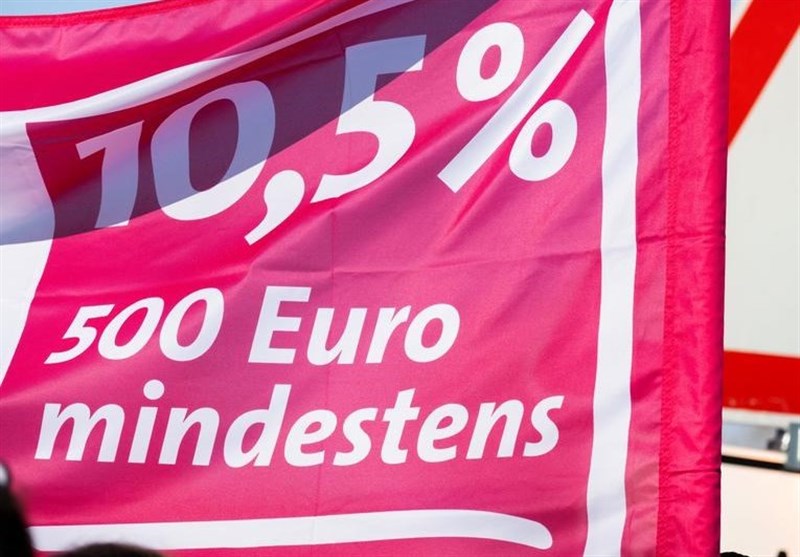Massive strike of teachers and teaching staff in Germany

| Due to the inconclusiveness of the negotiations of the German Education and Science Union with the employers to increase wages, strikes and mass protests of teachers and teaching staff were held in many regions of Germany today (Tuesday). |
According to the report of the international group Tasnim news agency, quoted by the German “Hamburger Abend Blatt” newspaper, Almost 20,000 employees at educational institutions across Germany staged a massive strike on Tuesday amid a public-sector collective bargaining dispute.
The Education and Science Union (GEW) made the announcement at lunchtime. . According to GEW, around 7,000 employees from schools, kindergartens and universities, as well as social workers in the youth, health and social welfare departments took part in the warning strike in Leipzig alone. There were 6,000 strikers in Berlin, and thousands stopped work in other cities. The warning strike was supported by demonstrations in Berlin, Hamburg, Leipzig and Karlsruhe.
Dorian Sibernik, a board member of the GEW in Leipzig, said: “If employers don’t wake up now and demand the rights of their public sector colleagues pay decently and fairly, the shortage of skilled workers will continue to worsen. The work of the employees of educational institutions is essential. At the same time, they suffer from a severe shortage of skilled workers. Inflation has also affected them, said GEW President Mike Finneran.
According to the Bertelsmann Foundation’s “Country Monitoring of Early Childhood Education Systems” survey, shortages of skilled workers, especially in kindergartens, can be is attention Based on this, despite the legal right to kindergarten, there is a shortage of about 430,000 kindergartens across the country.
The unions want 10.5 percent more pay for about 1.1 million public sector employees across the country, but at least 500 More euros per month. In addition, the unions want a collective agreement for all student workers. The tariff period must be twelve months. The collective bargaining association of the German states (TdL) did not make an offer in the second round of negotiations at the beginning of November. The third round of negotiations will be held on the 7th and 8th of December in Potsdam.
These days, a wave of strikes has engulfed various sectors of the German public services. Widespread strikes in the public service sector, due to the failure of negotiations with employers to increase wages, could create unpleasant conditions even at Christmas. Recently, the Locomotive Union in Germany called strikes in cities. Various German protested wages, which led to the cancellation of many trains and chaos.
A few days ago, government employees in social and educational services, which have been working for a long time due to a lack of staff, over They complain about the uncertain working conditions and strike and organized mass protests in some German states.
end of message/
| Publisher | Tasnim News |


